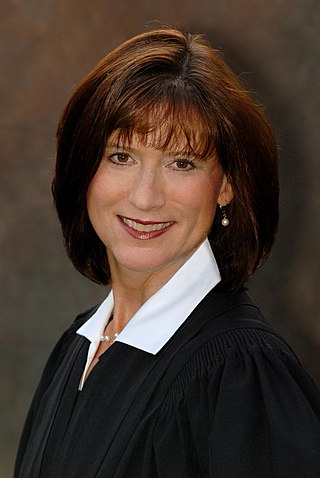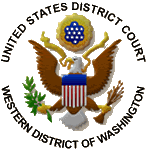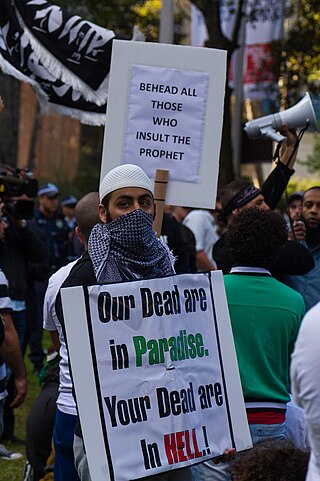
Fair use is a doctrine in United States law that permits limited use of copyrighted material without having to first acquire permission from the copyright holder. Fair use is one of the limitations to copyright intended to balance the interests of copyright holders with the public interest in the wider distribution and use of creative works by allowing as a defense to copyright infringement claims certain limited uses that might otherwise be considered infringement. The U.S. "fair use doctrine" is generally broader than the "fair dealing" rights known in most countries that inherited English Common Law. The fair use right is a general exception that applies to all different kinds of uses with all types of works. In the U.S., fair use right/exception is based on a flexible proportionality test that examines the purpose of the use, the amount used, and the impact on the market of the original work.

In re Aimster Copyright Litigation, 334 F.3d 643, was a case in which the United States Court of Appeals for the Seventh Circuit addressed copyright infringement claims brought against Aimster, concluding that a preliminary injunction against the file-sharing service was appropriate because the copyright owners were likely to prevail on their claims of contributory infringement, and that the services could have non-infringing users was insufficient reason to reverse the district court's decision. The appellate court also noted that the defendant could have limited the quantity of the infringements if it had eliminated an encryption system feature, and if it had monitored the use of its systems. This made it so that the defense did not fall within the safe harbor of 17 U.S.C. § 512(i). and could not be used as an excuse to not know about the infringement. In addition, the court decided that the harm done to the plaintiff was irreparable and outweighed any harm to the defendant created by the injunction.

Diane Schwerm Sykes is an American jurist and lawyer who serves as the chief judge of the U.S. Court of Appeals for the Seventh Circuit. She served as a justice of the Wisconsin Supreme Court from 1999 to 2004.

Mary Margaret McKeown is a senior United States circuit judge of the United States Court of Appeals for the Ninth Circuit based in San Diego. McKeown has served on the Ninth Circuit since her confirmation in 1998.

Milan Dale Smith, Jr. is an American attorney and jurist serving as a United States circuit judge of the United States Court of Appeals for the Ninth Circuit. Smith's brother, Gordon H. Smith, was a Republican U.S. Senator from 1997 to 2009. Milan Smith is neither a Republican nor a Democrat, and he considers himself to be a political independent.

Kim Anita McLane Wardlaw is an American lawyer and jurist serving as a United States circuit judge of the United States Court of Appeals for the Ninth Circuit since 1998. She is the first Hispanic American woman to be appointed to a federal appeals court. Wardlaw was considered as a possible candidate to be nominated by Barack Obama to the Supreme Court of the United States.

Lewis Galoob Toys, Inc. v. Nintendo of America, Inc. is a 1992 legal case where the United States Court of Appeals for the Ninth Circuit concluded that there was no copyright infringement made by the Game Genie, a video game accessory that could alter the output of games for the Nintendo Entertainment System. The court determined that Galoob's Game Genie did not violate Nintendo's exclusive right to make derivative works of their games, because the Game Genie did not create a new permanent work. The court also found that the alterations produced by the Game Genie qualified as non-commercial fair use, and none of the alterations were supplanting demand for Nintendo's games.

Perfect 10, Inc. v. Amazon.com, Inc., 508 F.3d 1146 was a case in the United States Court of Appeals for the Ninth Circuit involving a copyright infringement claim against Amazon.com, Inc. and Google, Inc., by the magazine publisher Perfect 10, Inc. The court held that framing and hyperlinking of original images for use in an image search engine constituted a fair use of Perfect 10's images because the use was highly transformative, and thus not an infringement of the magazine's copyright ownership of the original images.

Vernor v. Autodesk, Inc. was a case in the United States District Court for the Western District of Washington regarding the applicability of the first-sale doctrine to software sold under the terms of so-called "shrinkwrap licensing." The court held that when the transfer of software to the purchaser materially resembled a sale it was, in fact, a "sale with restrictions on use" giving rise to a right to resell the copy under the first-sale doctrine. As such, Autodesk could not pursue an action for copyright infringement against Vernor, who sought to resell used versions of its software on eBay. The decision was appealed to the United States Court of Appeals for the Ninth Circuit, which issued a decision on September 10, 2010, reversing the first-sale doctrine ruling and remanding for further proceedings on the misuse of copyright claim. The Ninth Circuit's decision asserted that its ruling was compelled by Ninth Circuit precedent, but observed that the policy considerations involved in the case might affect motion pictures and libraries as well as sales of used software.

Andrew David Hurwitz is a senior United States circuit judge of the United States Court of Appeals for the Ninth Circuit. He served as a justice of the Arizona Supreme Court from 2003 to 2012.

Viacom International, Inc. v. YouTube, Inc., 676 F.3d 19, was a United States Court of Appeals for the Second Circuit decision regarding liability for copyright infringement committed by the users of an online video hosting platform.
Omega S. A. v. Costco Wholesale Corp., 541 F.3d 982, was a case decided by the Ninth Circuit Court of Appeals that held that in copyright law, the first-sale doctrine does not act as a defense to claims of infringing distribution and importation for unauthorized sale of authentic, imported watches that bore a design registered in the Copyright Office. It is contrasted with Kirtsaeng v. John Wiley & Sons, Inc.

Innocence of Muslims is a 2012 anti-Islamic short film that was written and produced by Nakoula Basseley Nakoula. Two versions of the 14-minute video were uploaded to YouTube in July 2012, under the titles "The Real Life of Muhammad" and "Muhammad Movie Trailer". Videos dubbed in Arabic were uploaded during early September 2012. Anti-Islamic content had been added in post-production by dubbing, without the actors' knowledge.
Fox Broadcasting Co. v. Dish Network, LLC is a copyright case in which the United States District Court for the Central District of California, by granting partial summary judgment, denied most parts of the copyright claims presented by Fox Broadcasting Company (Fox) against Dish Network (Dish) for its service, a DVR-like device that allowed users to record programming that could be accessed later through any Internet-connected device. The service offered by Dish also allowed users to record any or all Fox's prime-time programs and to automatically skips commercials (AutoHop).

Connection Distributing Co. v. Holder, 557 F.3d 321 is a case in which the United States Court of Appeals for the Sixth Circuit held that the record-keeping provisions of the Child Protection and Obscenity Enforcement Act did not violate the First Amendment.
Petrella v. Metro-Goldwyn-Mayer, Inc., 572 U.S. 663 (2014), is a United States Supreme Court copyright decision in which the Court held 6-3 that the equitable defense of laches is not available to copyright defendants in claims for damages.
American Broadcasting Cos., Inc. v. Aereo, Inc, 573 U.S. 431 (2014), was a United States Supreme Court case. The Court ruled that the service provided by Aereo, which allowed subscribers to view live and time-shifted streams of over-the-air television on Internet-connected devices, violated copyright laws.

Between 2011 and 2018, a series of disputes took place about the copyright status of selfies taken by Celebes crested macaques using equipment belonging to the British wildlife photographer David J. Slater. The disputes involved Wikimedia Commons and the blog Techdirt, which have hosted the images following their publication in newspapers in July 2011 over Slater's objections that he holds the copyright, and People for the Ethical Treatment of Animals (PETA), who have argued that the copyright should be assigned to the macaque.
Google has been involved in multiple lawsuits over issues such as privacy, advertising, intellectual property and various Google services such as Google Books and YouTube. The company's legal department expanded from one to nearly 100 lawyers in the first five years of business, and by 2014 had grown to around 400 lawyers. Google's Chief Legal Officer is Senior Vice President of Corporate Development David Drummond.

International Refugee Assistance Project v. Trump, 883 F. 3d 233, was a decision of the United States Court of Appeals for the Fourth Circuit, sitting en banc, upholding an injunction against enforcement of Proclamation No. 9645, titled "Enhancing Vetting Capabilities and Processes for Detecting Attempted Entry Into the United States by Terrorists or Other Public-Safety Threats", a presidential proclamation signed by President Donald Trump on September 24, 2017. The proclamation indefinitely suspends the entry into the U.S. of some or all immigrant and non-immigrant travelers from eight countries. It is a successor to Executive Order 13769, entitled "Protection of the Nation from Terrorist Entry into the United States," which were also enjoined by the District Court of Maryland and the Fourth Circuit in a case decided in 2017 by the same name of International Refugee Assistance Project v. Trump, 857 F.3d 554.














